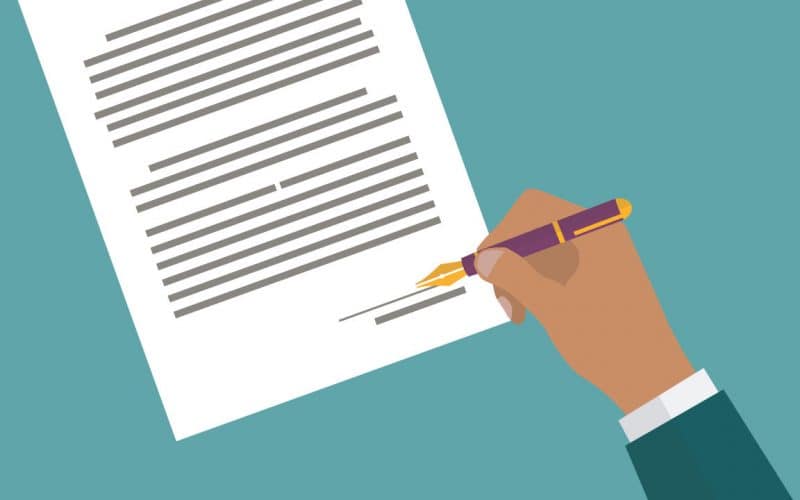Ever wondered why your job applications disappear into the “void” without a trace? Perhaps your cover letter isn’t “grabbing” enough attention. If you suspect that’s the culprit, fear not! You’re in the right spot to unveil the key to a standout job cover letter. Crafting a compelling job cover letter can be the key to unlocking the door to your dream job.
In this ultimate guide, we’ll explore some of the best job cover letters that will leave a memorable first impression on potential employees. But first, let us look at the importance of Job cover letters.
Why Are Job Cover Letters Important?
I, like many others, have pondered the necessity of a job cover letter. Why isn’t my CV sufficient to demonstrate that I’m suitable for the position?
The truth about Job Cover Letters is that you’re not just showcasing your clean, crisp writing or the ability to communicate effectively but also proving you can apply them effectively at the company.
A job cover letter lets you highlight parts of your journey that your resume barely touches u pon. Each sentence can strategically position you as the perfect fit by connecting your background to the job posting.
Having understood the significance of job cover letters, let’s delve into the essential elements that every effective job cover letter should include.
5 Key Elements of a Job Cover Letter

Roll up your sleeves because each part of your job cover letter has a job to do. It starts with the basics:
#1. Contact Information
This includes both your contact information and the employer’s contact details in your job cover letter demonstrating thorough research and a proactive approach.
It shows the employer that you’re not only prepared but also familiar with their organization, making a strong impression right from the start.
#2. Salutation
Whenever possible, address the hiring manager directly. “Dear Hiring Manager” is a safe fallback, but a specific name works wonders.
#3. Introduction
Grab attention. State the position you’re applying for and drop a line or two about why you’re the tailor-made fit.
#4. Body Paragraphs
Discuss relevant experience, address key points from the job description, and lastly, make sure to connect those points with your capabilities.
This is where you make your case.
#5. Conclusion
Make sure you express enthusiasm about the role and suggest an interview or a meeting.
5 Tips for Writing an Effective Job Cover Letter
The following are 5 tips for writing an effective Job Cover Letter
#1. Match the Tone
Mirror the company’s culture in your writing style. Corporate industries appreciate a traditional tone, while startups might relish something bolder.
#2. Customize Relentlessly
Avoid using a generic cover letter for multiple job applications.
Instead, tailor each cover letter meticulously by highlighting specific details about the company and showcasing how your skills and experiences directly meet their requirements.
#3. Show Don’t Tell
Focus on demonstrating your achievements rather than just listing your job titles or responsibilities.
Quantify your accomplishments whenever feasible, such as “increased sales by 20%” or “led a team that reduced customer complaints by 30%.”
This approach provides concrete evidence of your contributions and showcases your value to potential employers.
#4. Keep It Concise
Aim for three-quarters of a page to one full page at most. If the letter is too bulky, the reader may want to skim through and miss some of your main points.
Now let’s look at some Job Cover letter examples that you can tailor to suit your needs.
Job Cover Letter Example #1: Entry-Level Position
Dear Mr. Smith,
I am writing to express my interest in the Junior Analyst position at ABC Corp, as advertised on LinkedIn. With a robust academic background in data analysis and internship experience at XYZ Co., I am eager to apply my skills in a dynamic new setting.
During my internship at XYZ Co., I spearheaded a project that analyzed and streamlined the process of data collection, reducing errors by 15%. I am particularly drawn to this role at ABC Corp because of your commitment to innovation and excellence, values I have upheld throughout my academic and professional life.
Thank you for considering my application. I am looking forward to the opportunity to further discuss how I can contribute to the continued success of ABC Corp.
Sincerely,
John Doe
Job Cover Letter Example #2: Mid-Career Professional
Dear Ms. Brown,
I am excited about the opportunity to apply for the Marketing Manager position at XYZ Inc., as advertised on your careers page. With over eight years of dedicated marketing experience, particularly in the realm of digital workflows, I am well-prepared to significantly contribute to your team.
At my current position with ABC Corp, I led our marketing team to a 30% increase in ROI through strategic SEO and content marketing initiatives, a key achievement that aligns with the goals of XYZ Inc. I am impressed by XYZ’s innovation in marketing strategies and your recent award for creative excellence, and I am eager to bring my expertise in these areas to your esteemed company.
I appreciate your consideration and am looking forward to discussing how I can contribute to the ongoing success and growth of XYZ Inc.
Best regards,
Jane Smith
Job Cover Letter Example #3: Career Change
Dear Hiring Manager,
I am writing to you regarding the Project Manager position at ABC Technology. With a ten-year background in financial operations and extensive leadership experience, I am now looking to pivot my career towards project management, a role where I can combine my organizational skills with my passion for tech.
Throughout my career, I have demonstrated my ability to lead diverse teams and manage complex projects, skills that are transferable and vital to a successful project manager. Joining ABC Technology interests me particularly due to your commitment to innovation and quality—and I am excited about the chance to contribute to such an exciting company.
Thank you for considering my application. I am eager to bring my background in finance and operations to ABC Technology and grow in the tech industry.
Warmest regards,
Michael Johnson
Common Mistakes to Avoid in Cover Letter Writing
A few years back, my sister requested my CV and urged me to include a cover letter for a position available at her workplace. I vividly recall her immediate feedback, echoing in my memory: “This isn’t the way to write a job cover letter.
Like me (some years ago), most people make a lot of errors when writing job cover letters. Simple errors can derail even the most promising cover letter.
4 Most Common Errors When Writing Job Cover Letters
- Typos and Grammatical Errors: Typos are almost impossible to avoid when writing, so always Proofread. Then proofread again.
- Overly Casual Tone: Keep it professional. This isn’t the place for slang or overly casual language.
- Rehashing Your Resume: Use your cover letter to expand on your resume, not repeat it.
- Too Lengthy: If your cover letter is spilling onto a second page, cut it down. Keep your narrative tight and on point.
Do employers read cover letters?
Depending on the company and its schedule, many employers do read cover letters, while others may focus more on your resume.
Since you don’t know which approach the hiring manager will take, be sure to write a personalized cover letter that conveys why they should hire you.
What is the purpose of a cover letter?
The purpose of a cover letter is to elaborate on the achievements outlined in your resume. A cover letter typically includes four main areas.
First, add your contact information so the employer can reach out to you. Then, include an introduction explaining who you are and how you heard about the job.
Next, write body paragraphs that explain why you would be a perfect fit for their company.
Finally, close your cover letter with a reminder of why you are a great candidate and a call to action, requesting the employer to reach out.
What’s the difference between a cover letter and a resume?
A resume outlines your job history in general, while a cover letter highlights qualifications you have that are specific to the job you are applying for.
When writing a resume, the information you include is typically listed in reverse chronological order, meaning your most recent work experience would come first.
Cover letters, however, are written in a letter format to explain how you meet specific job criteria.
Both of these documents are needed in the job application process to showcase your background and further explain why it applies to an open position.
Should I include a cover letter if the application says “optional”?
Even if an application says a cover letter is optional, it is a good idea to submit one. Writing a cover letter shows recruiters that you are willing to put in the extra effort.
The exception to submitting a cover letter is when a business specifically asks you not to include one.
What are some common mistakes to avoid making when writing a cover letter?
One common mistake people make when writing a cover letter is forgetting to proofread. Before submitting your cover letter, make sure your writing is free of spelling and grammatical errors and avoids repetition.
It is also best to avoid overusing the word “I” too much, especially at the beginning of your sentences.
One last mistake to avoid is repeating too much of the general information from your resume. Instead, focus on your top selling points and tell a story about your experiences and how they prepared you for this particular role.
Conclusion
Stand out with your job cover letter. Dare to be different. Strike a chord by illustrating your passion for the role or the company. Did their recent innovation inspire you? Say so.
Address challenges they are facing and suggest solutions, most importantly, how you can help. Companies want problem solvers who bring value.
Ultimately, your cover letter is your narrative spun in your voice. It’s what sets you apart and can potentially tip the scales in your favor.
Tailor it, proof it, and most importantly, make it as distinctly yours as you can. Now, go ahead and tell them why you’re the one they’ve been looking for!
- How To Write a Good Cover Letter For a Job?
- JOB OFFER LETTER: How to Write It, Template, and What Not to Do
- WHAT IS A COVER LETTER: How to Write It & Guide
- OFFER LETTER: Meaning, Job & Template
- LETTER OF INTEREST VS COVER LETTER: Key Differences






